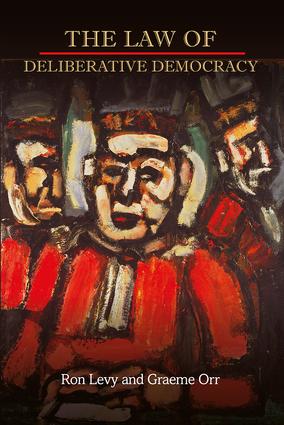
The Law of Deliberative Democracy examines the extent to which the legal regulation of politics matches deliberative democratic ideals, and how and whether they should try to do so. The book’s unifying question is: ‘How does the law constrain, enable and guide deliberation in the way it governs the four key realms of democratic choice: elections, referendums, parties and parliaments (or Congress)? In a number of Western countries, ‘modern’ electoral, referendum, party and parliamentary law was laid down by the early 20th century.
From the 1960s, proliferating regulation filled out, but did not significantly alter, these essentials. To what extent are these laws adapted to enhance deliberation – given marked developments in democratic practice in the meantime? We cannot understand politics without understanding the laws that help define political practice. And, for deliberative democracy, the role of law is especially salient: laws not only create, but are integral to, and even constitutive of, sites of political deliberation. Examining the law of politics in the United Kingdom, the United States, Canada and Australia, The Law of Deliberative Democracy is essential reading for those in both law and political science concerned with enhancing deliberative democratic practices in government.